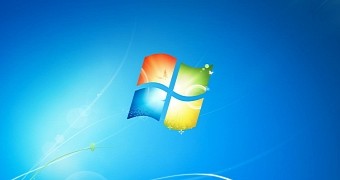Microsoft will officially retire Windows 7 on January 14, 2020, and as I said on several occasions, this is going to be one difficult moment not only for users, but for the software giant itself.
According to NetMarketShare data for the month of August, Windows 7 was running on 30.34% of the desktops out there, which makes it the second most-used operating system in the world.
With less than six months on the clock until it gets the ax, it’s pretty clear that Windows 7 won’t be a sitting duck, and the 2009 operating system is very likely to cause serious headaches to the software giant.
In other words, not everyone is likely to give up on Windows 7 before the time comes, and if the Windows XP story happens again, there’s a chance way too many users will stick with this OS version despite the obvious security risks.
Without security updates and patches, Windows 7 would remain vulnerable to attacks, as the vulnerabilities discovered in the OS won’t be getting any fixes. This means hackers will be able to take advantage of them, especially if users still running Windows 7 ignore the most common security recommendations.
Part of the Windows 7 userbase, however, will actually make the switch to an operating system that is still supported either before the January 2020 deadline is reached or shortly after this happens.
But what’s the best Windows 7 alternative?
If you ask Microsoft, Windows 10 is the only answer. Windows 10 has become Microsoft’s one and only destination for everyone, so if you give up on Windows 7, you should at least consider moving to Windows 10.
Of course, not everyone is willing to do this, and some government agencies across the world are actually ready to switch to Linux. This is most likely because they’re also trying to reduce costs, as embracing Linux would help them save the money they would normally spend on licenses. On the other hand, these organizations should keep in mind that the transition to Linux also involves other costs, including compatibility optimizations and training for the staff that otherwise feels like home on Windows.
For consumers, migrating to Linux is a much easier thing to do, especially if we’re talking about power users. Distributions like Linux Mint have become much more user-friendly in the last couple of years and they provide users with a rather familiar UI similar to the one in Windows.
And last but not least, macOS continues to be an alternative that comes to some people’s minds now that Windows 7 is getting closer to its demise.
Switching from Windows to macOS, however, isn’t as easy as it sounds. First, it’s because macOS is a completely different platform that requires new apps and services. And second, macOS requires a bigger investment, as this OS only runs on Apple devices that are generally rather expensive.
Chromebooks have become more and more appealing for people around the world, especially as they spend most of their time online or in the browser. And given they are rather affordable as compared to Macs, for instance, it’s easy to see why Chromebooks are growing at such a fast pace.
At the end of the day, the world beyond Windows 7 comes down to Windows 10, Linux, Macs, or Chromebooks, but choosing between these four is without a doubt a difficult thing to do. Because such a migration needs to take into account a plethora of factors, including costs and app compatibility.
So if you have to decide right now, what’s the best alternative to Windows 7? Let us know in the box after the jump.

 14 DAY TRIAL //
14 DAY TRIAL //